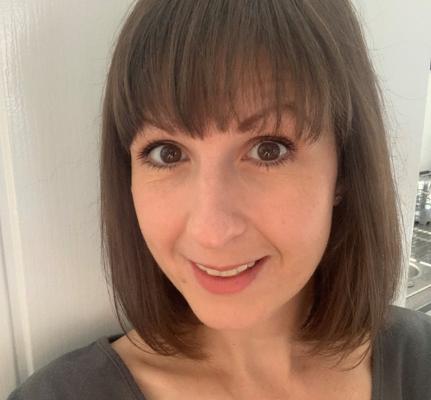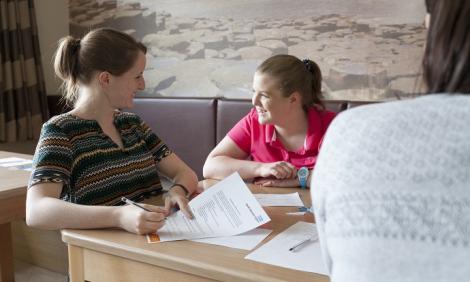Children's wellbeing practitioner
Children and young people’s wellbeing practitioners (CWPs) assess and support children and young people with mental health problems, improving their access to therapies.
You’ll play a key role in signposting children and young people to appropriate mental health and community services and referring those with more complex problems for the right mental health support.
Life as a children’s wellbeing practitioner
You’ll ensure children and young people have access to mental health support. You’ll offer evidence-based interventions for children and young people with mild to moderate mental health difficulties.
You’ll also build relationships across the children and young people’s mental health care system, developing a valuable and detailed understanding of related services.
As a CWP you're in a unique position to be able to triage patients based on their needs and to signpost other services, including voluntary services and children and young people’s mental health services (CYPMHS - formerly CAMHS). This role supports the Government's priority of increasing access to and availability of mental health and wellbeing support for children and young people.
You’ll work as part of a wider team supporting children and young people and their families and carers by:
- building relationships with other services to ensure children and young people can be referred to the services that best meet their needs
- communicating effectively with children, young people and their families and carers when referrals are made
- recognising which services could provide ongoing support when therapy comes to an end, such as youth groups, for example
- developing a shared understanding of which referrals are suitable for CYPMHS
Once qualified, you'll work within a community mental health, CYPMHS, primary care, local authority or voluntary sector organisation. You could be based in GP practices, healthcare centres or other community settings.
Sophie Tomlin
Senior children's wellbeing practitioner
Read Sophie's storySeeing the positive change in them throughout their treatment is inspiring and I get to see the difference my role makes to their lives

How much can I earn?
If you’re employed by the NHS, you’ll be on a national pay and conditions system called Agenda for Change (AfC).
There are nine pay bands and you’ll usually be paid at band 4 while you train. After completing your training you’ll be paid at band 5 with the opportunity to progress to the next pay point annually until you reach the top of the pay band.
Terms and conditions can vary if you are employed outside the NHS.
How about the benefits?
As a CWP, you can:
- make a difference
- work flexible and part-time hours
If you’re employed by the NHS you’ll also have good holiday entitlement and access to:
- fully funded training plus a salary while you train and a job in the service when you qualify
- an excellent pension scheme
- NHS discounts in shops and restaurants
Must-have skills
As a CWP you need:
- excellent interpersonal skills and the ability to build relationships with a range of people, including children and their families from all backgrounds
- to be able work well within a multidisciplinary team
- a good understanding of mental health issues
- strong written and verbal communication skills, tailored to a variety of audiences
- to be able to work independently and use your initiative to think quickly spot in often challenging situations
- creativity to solve problems and tackle obstacles
- effective time management to meet tight deadlines and manage competing demands.
You'll also need to be able to demonstrate the values of the NHS Constitution.
Entry requirements
To become a CWP you need to complete a year-long training programme. To access the training, you will need to apply for a position as a trainee CWP in a children and young people's mental health service.
The programme is open to anyone, with or without a degree, who has experience of working with children and young people to support their mental health. You do not need a degree to apply for the programme, but you’ll need to show that you are able to study at degree level.
If you have a degree, you would usually study for a postgraduate certificate. If you don’t have a degree, you could study for a graduate certificate. Training is part classroom-based, part on the job.
Entry requirements for the training courses include:
- experience of working with children and young people
- proven ability to study at undergraduate level
- knowledge of child and adolescent development
- good communication and interpersonal skills
During your one-year training programme, you’ll gain a range of experience and work closely with a trained supervisor to help you engage in self-reflection, seek and respond to feedback, and develop your professional knowledge and skills.
CWPs can now register with the British Psychological Society (BPS) or the British Association of Behavioural and Cognitive Psychotherapies (BABCP). The register opened in April 2023 and all CWPs will need to comply with the national requirement for registration by April 2024. The BPS and BABCP websites have all the details about how the registration process works, including the annual renewal requirement.
How to become a children’s wellbeing practitioner
Your first step is to apply for a training programme, and you can search for them on the NHS Jobs website. Set up an alert for ‘Trainee children’s wellbeing practitioner' to find training opportunities near you. You can also see some current vacancies below.
Where a career as a children’s wellbeing practitioner can take you
Once qualified, your employer will provide you with ongoing training to keep your skills and knowledge up to date. To support your practice and wellbeing as a practitioner, you will be provided with regular supervision.
The CWP role is still being developed, but in future there may be opportunities to specialise in areas such as:
- paediatrics
- neurodiversity
- particular groups of children and young people, such as those with long-term health conditions.
As a qualified CWP or education mental health practitioner (EHMP) you may be able to progress your career by applying to train as a senior wellbeing practitioner (SWP). The SWP training is two-year funded training programme during which you'll be paid at Agenda for Change (AfC) band 5. You can search for the SWP training posts on the NHS Jobs website. On successful completion of the programme, SWP posts are usually advertised at AfC band 6.
As a SWP you will be trained to support CWPs with their caseloads as well as deliver low intensity practice in trauma, OCD, tics and adapted low intensity interventions for young people with a learning disability or young autistic people.
It’s important to note that a two-year psychological professions funding rule policy was implemented on 1 April 2022. This means that if you start NHS-funded psychological professions training from April 2022, you won’t be eligible for NHS funding for further psychological profession training for two years from the expected completion date of your first training, where it would lead to a change in your job role. However, this rule does not apply to the SWP training programme as it doesn't result in a change in occupation. Therefore, the two-year rule would not stop a qualified CWP or EMHP becoming a trainee SWP within two years of completing their CWP course. However, before applying for SWP training it is recommended that you have a least two years' experience of being a CWP or EMHP.
Visit the funding for psychological professions training programmes web page for more information about NHS funding.





